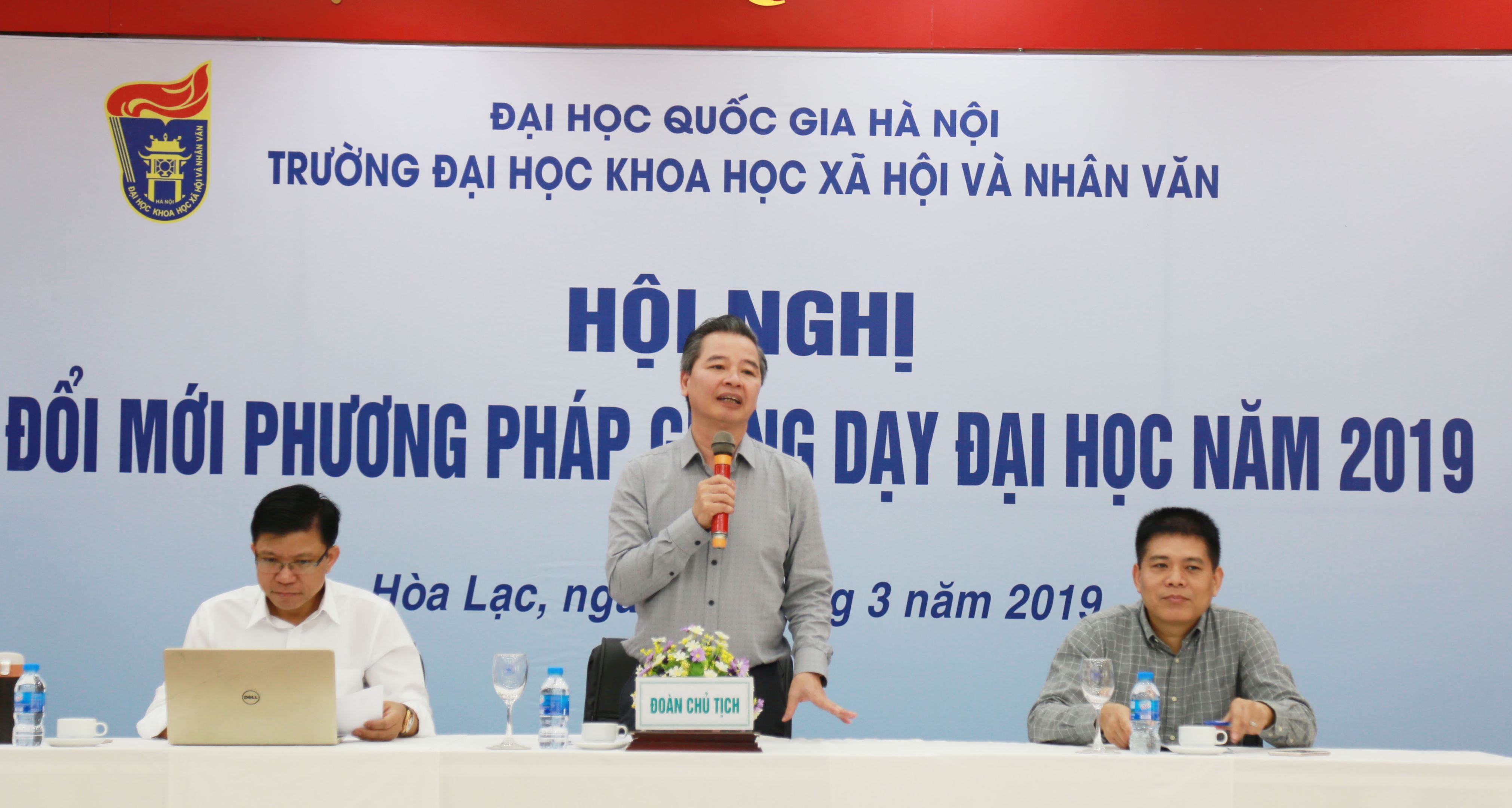
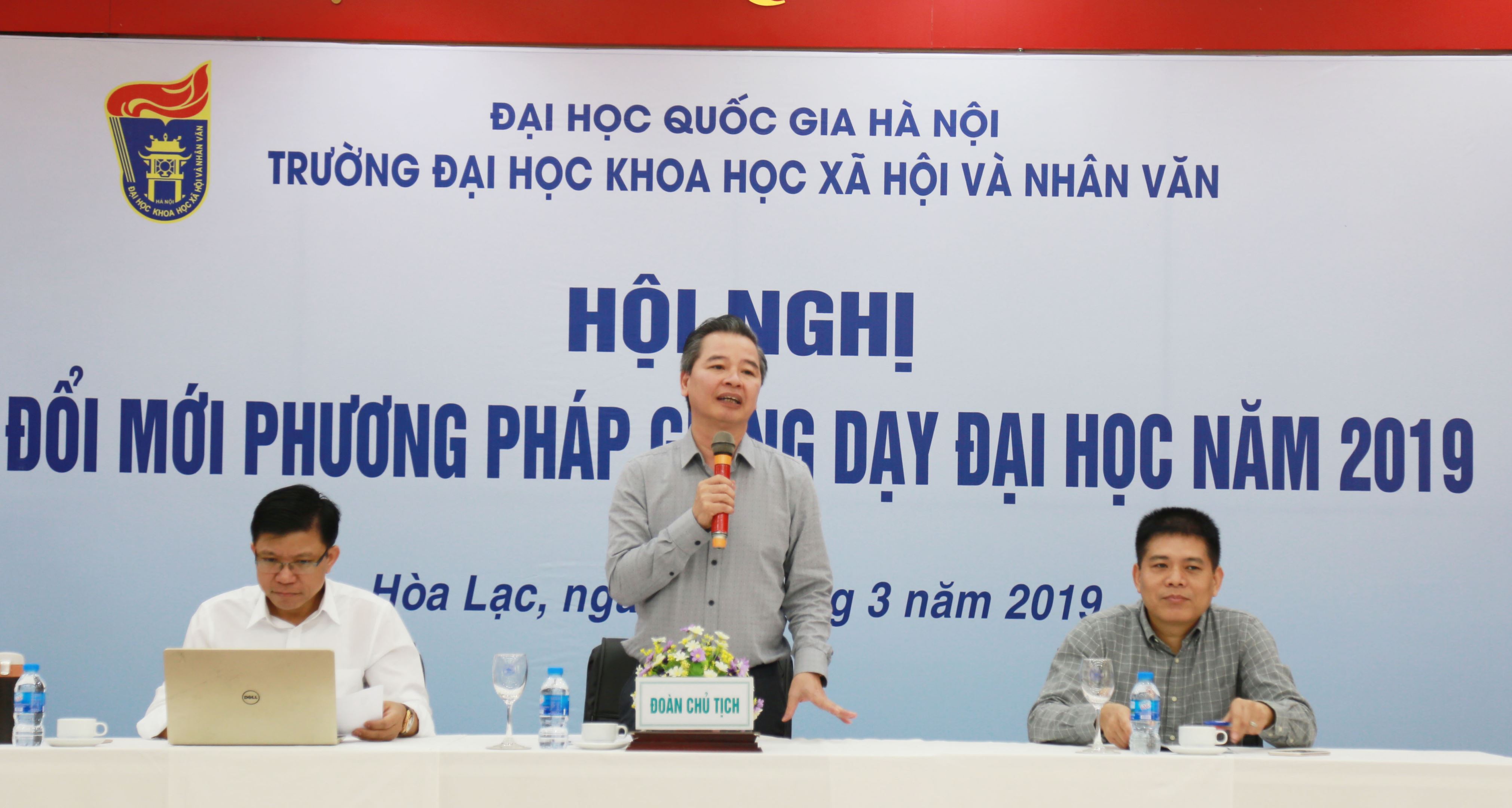
The central role of the Teacher: to convey - guide - suggest
The first speaker of the Conference was Prof. Dr. Vu Duong Ninh - Chairman of the Association of Former Teachers of the School, former student of the first course of the Faculty of History, Hanoi National University. The professor delivered a speech emphasizing the decisive role of teachers in ensuring the quality of teaching and learning activities. Accordingly, regardless of the period, with more or less impact of science and technology, the teaching activities of teachers still revolve around three main tasks: conveying - guiding - suggesting.
To communicate well, according to Professor Vu Duong Ninh, the most important thing is that the teacher has good logical thinking and pedagogical skills, helping to convey knowledge coherently, clearly, and easily understood. Students learn problem-solving skills through the teacher's way of communicating.
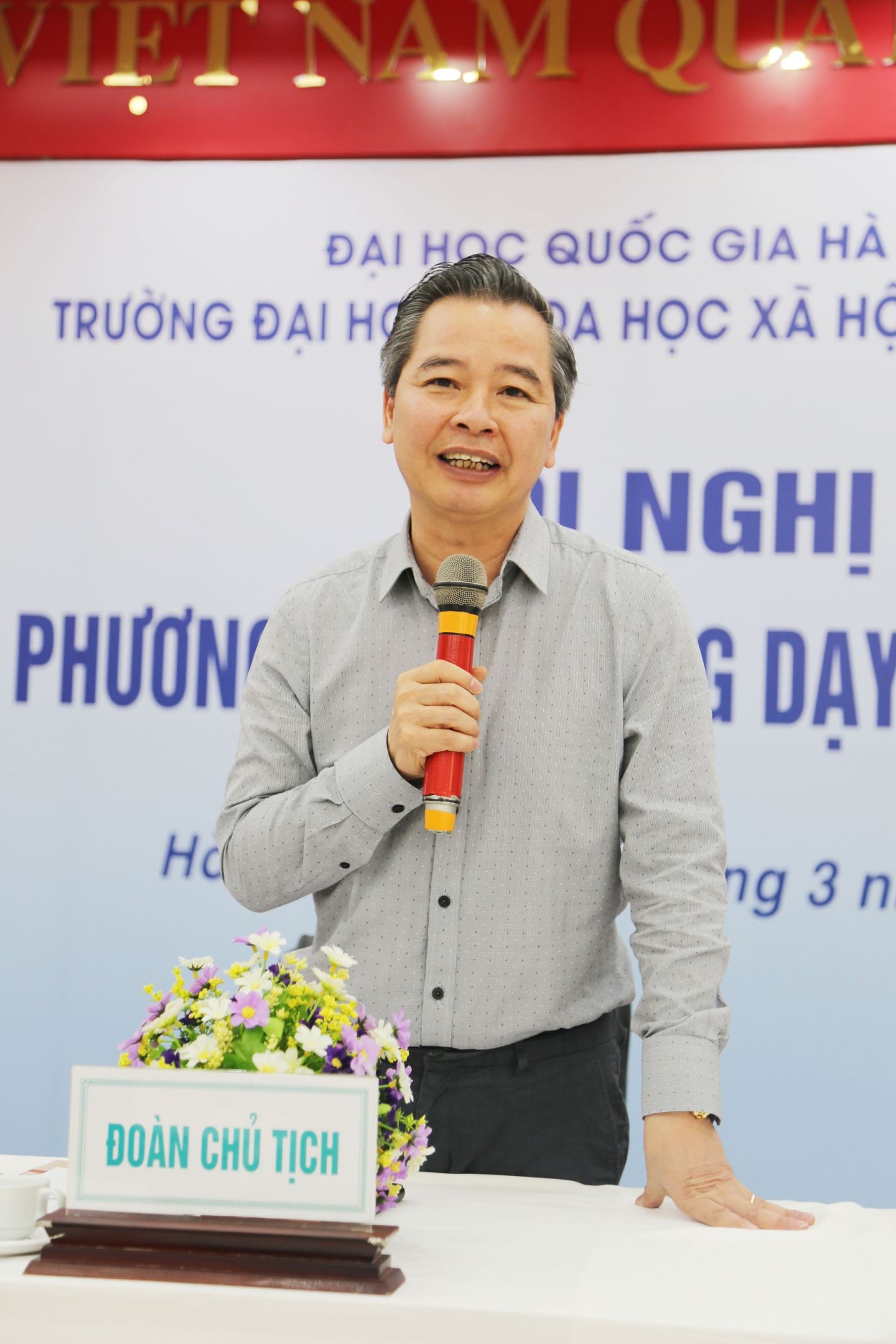
Prof. Dr. Pham Quang Minh (School Principal) delivered the opening speech at the conference
Regarding the open-ended requirement, Professor Vu Duong Ninh believes that this is the difference that a lecturer at a basic science university must do - that is, to help students gain theoretical knowledge and a broad vision beyond the subject matter. Through the lessons, the lecturer shares necessary documents related to the lesson. However, to avoid assigning reading materials in a formal manner, the teacher must be the one to read and understand the content in the book; assign each student to read and learn the content of each section. The students themselves will be the ones to stand up in front of the class to discuss the content they have researched and share their comments with their classmates. In addition, the teacher suggests controversial issues related to the learning content; suggests new research directions and awareness of research in students. Through the above interactions, the teacher himself also learns many things from the students; finds students with good research ability to guide them further. “The teacher himself must be a researcher, with a broad background of knowledge to do this job well. Teach what he has researched and discovered, not just teach what others say” - Professor Ninh said.
Regarding the need for guidance, the speaker said that teachers need to grasp the "gaps" and "ambiguities" in research, and guide students step by step to build their thinking capacity and skills to conduct their own research.
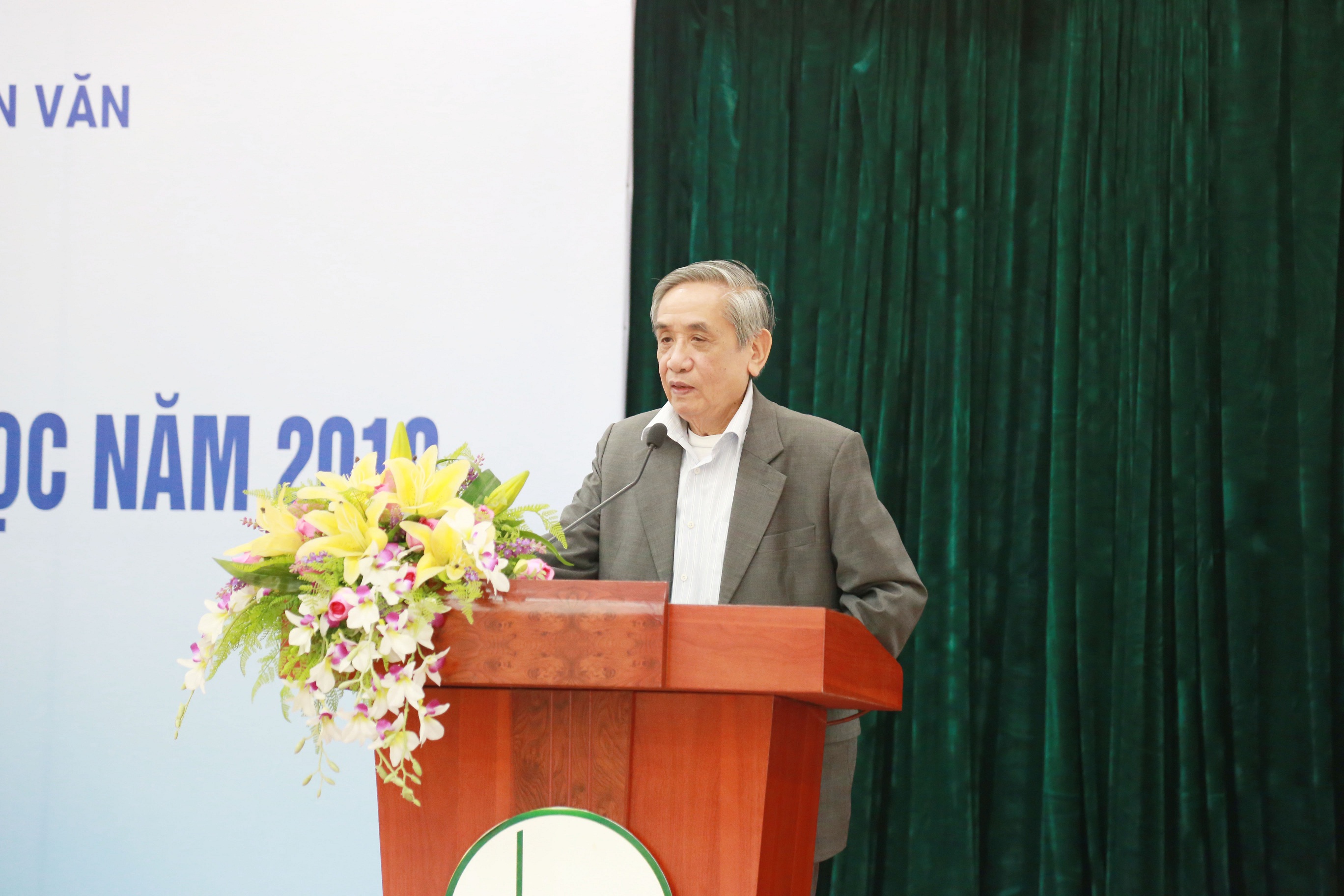
Prof. Dr. Vu Duong Ninh (Chairman of the School's Former Teachers Association) spoke at the Conference
Innovation in teaching methods from the perspective of the characteristics of the Information Society
Discussing “Innovation in teaching and learning methods in the context of the 4th industrial revolution”, Associate Professor, Dr. Vu Cao Dam (Chairman of the Council of Science and Training, Institute of Policy and Management, University of Social Sciences and Humanities) said that the current context is deeply affecting teaching in universities. That is the increasing appearance of smart devices in production and life. Scientific and technological advances are taking place extremely quickly. A series of new theories have appeared in different fields of science and technology. The Internet of things has been and is intervening in school life at a strong speed.
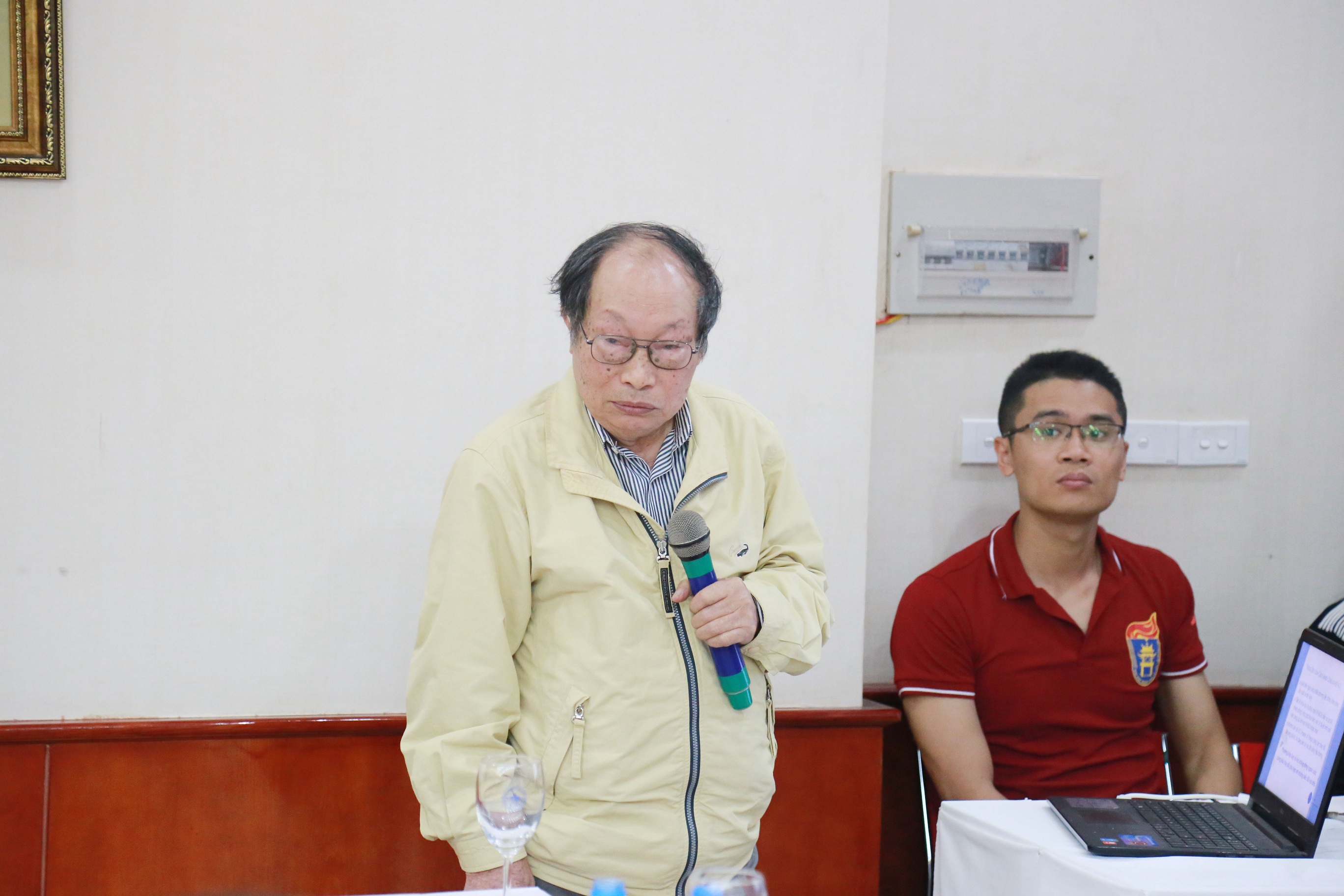
Associate Professor, Dr. Vu Cao Dam (Chairman of the Science and Training Council, Institute of Policy and Management) presented a report on "Innovation in teaching and learning methods in the context of the 4th industrial revolution"
According to Alvin Toffler (inEducational revolution,Future Shock), human society has gone through three stages of development, and is currently in the stage ofInformation societywith the following characteristics: decentralization, de-accumulation, de-synchronization, de-standardization and multi-functionality. The world “puts us on the brink of chaos” and “modern society does not develop according to linear laws… If you are incompetentforecastand cannot immediately give theoptimal decision, then you can be completely eliminated" (according toGibson et al., Rethinking the Future,Tre Publishing House, Ho Chi Minh City, 2002).
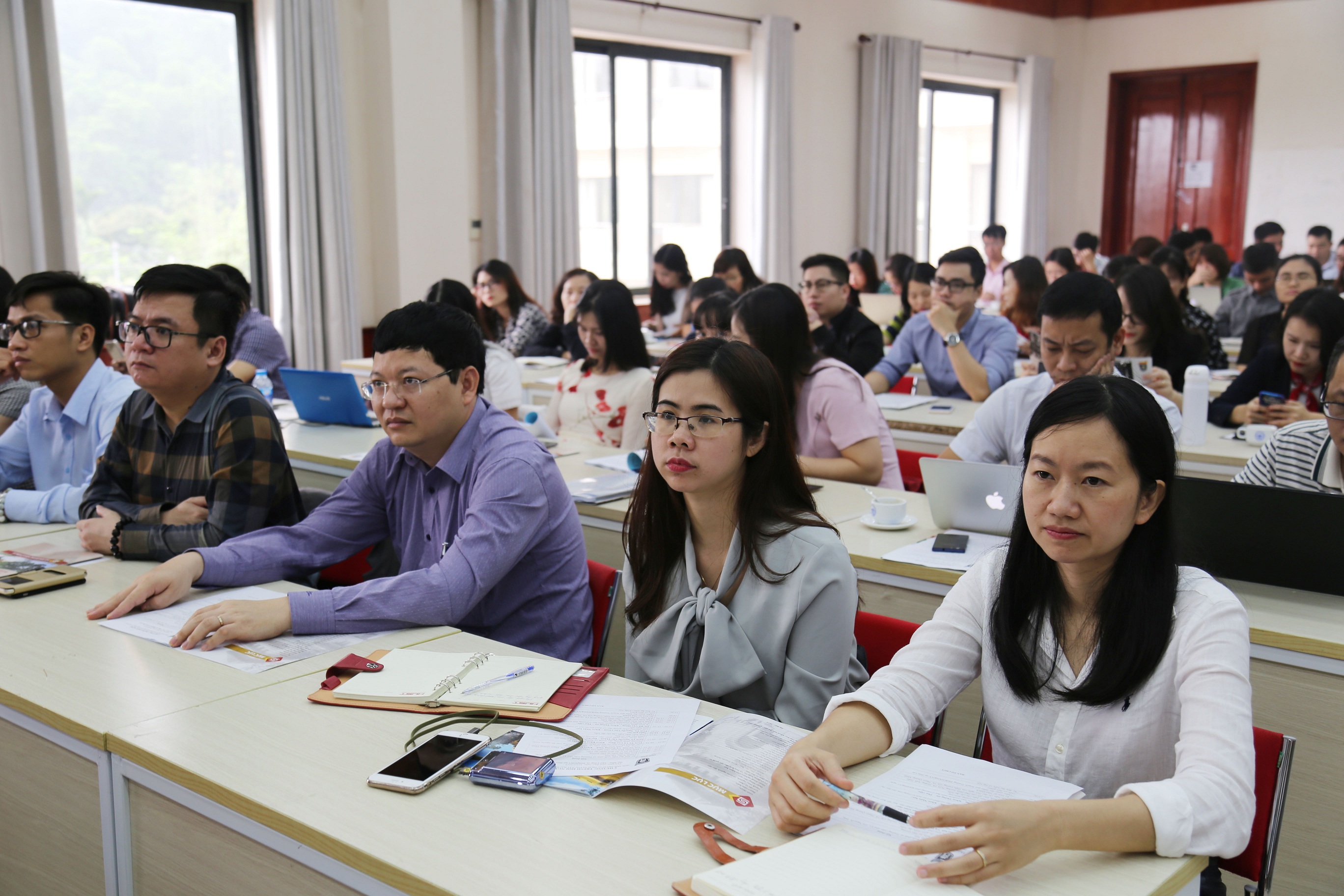
Many young lecturers attended the Conference
Based on the analysis of the general context, the speaker suggested that teaching and learning methods need to be innovated in three main directions: one is to build according to the code system of the Information Society. Two is for teachers and learners to make the most of the achievements of the 4.0 revolution, including the means of the Internet of Things in schools. Three is to teach learners to have the skills to cope in an ever-changing society.
Associate Professor Vu Cao Dam also shared the philosophy of “teaching and learning according to an educational program that goes ahead of science”. That is to teach skills, research thinking in learning and understanding the ever-changing future; teach to have the ability to be creative and start a business; practice self-study skills according to scientific research methods.
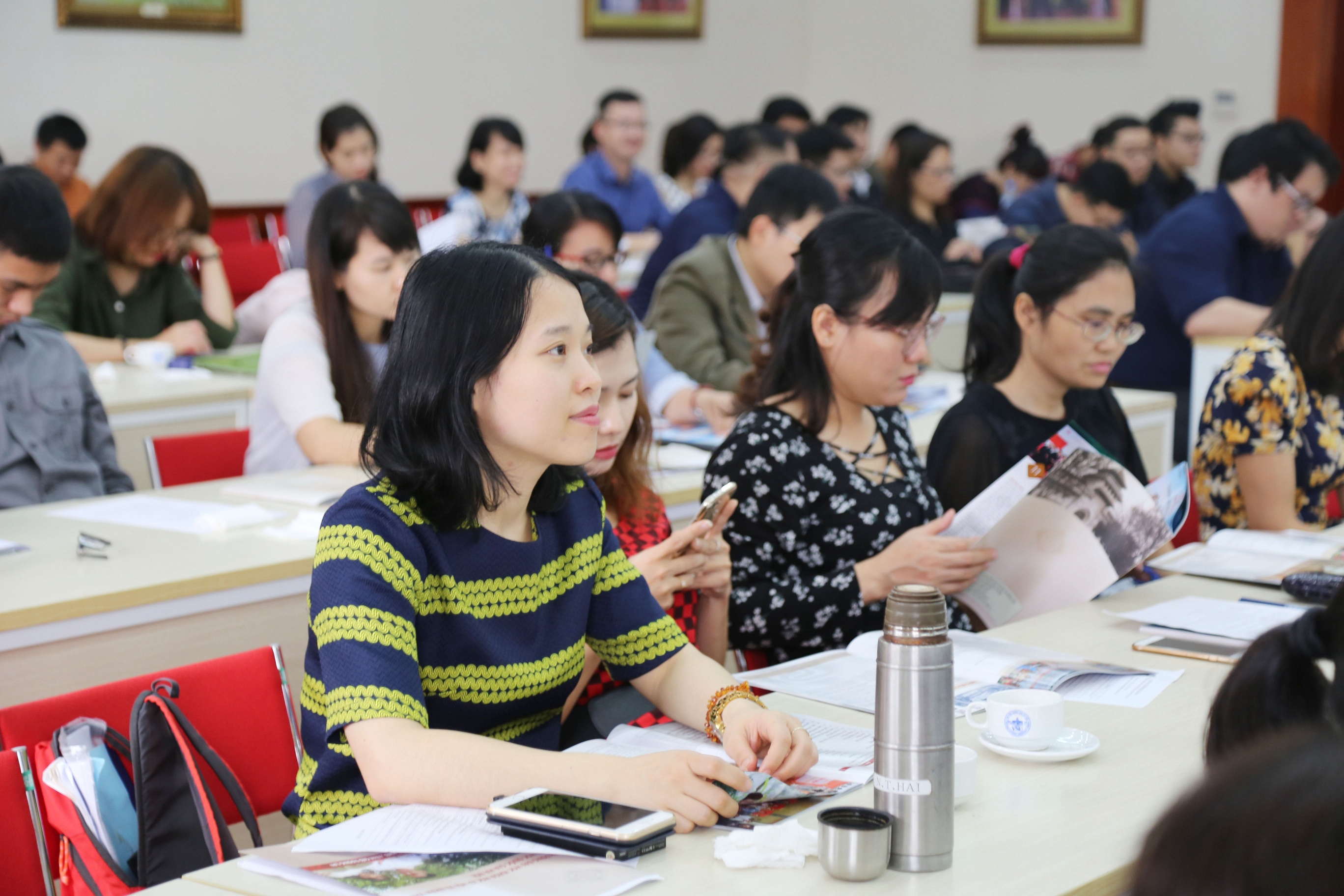
From the perspective of the School, innovation in teaching and learning needs to take advantage of the autonomy of VNU and its members to have effective policies and solutions. From the perspective of the teaching community, Associate Professor Vu Cao Dam proposed the following solutions: from the perspective of Industry 4.0, review the changes in their professional fields to promptly filter and innovate content suitable for the comparison of the information society's coding system; work with students to conduct teaching and learning according to scientific research methods; take advantage of all means of the Internet of Things to enrich lectures and create interest for learners.
Based on the philosophy of liberal education
“Educational ideology and philosophy correspond to that method” - that is the view of Associate Professor, Dr. Nguyen Van Chinh (Faculty of Anthropology) - “We are standing at the crossroads of the transformation of the educational model. And this is a huge challenge in teaching methods”. Taking the construction of a research university and the philosophy of liberal education as the orientation, the School's teaching innovation activities need to be built on the foundation of that philosophy. According to his own observations, Associate Professor, Dr. Nguyen Van Chinh summarizes three current teaching styles. One is the “inspirational” teaching model - inspiring learners. This method may conflict with the academic teaching method. There are people who do not need academic knowledge to inspire learners. The second is teaching in the style of imparting knowledge and explaining. The third model is following the “liberal” trend, which provides students with multi-dimensional information, allowing students to participate in scientific debates and debate opinions.
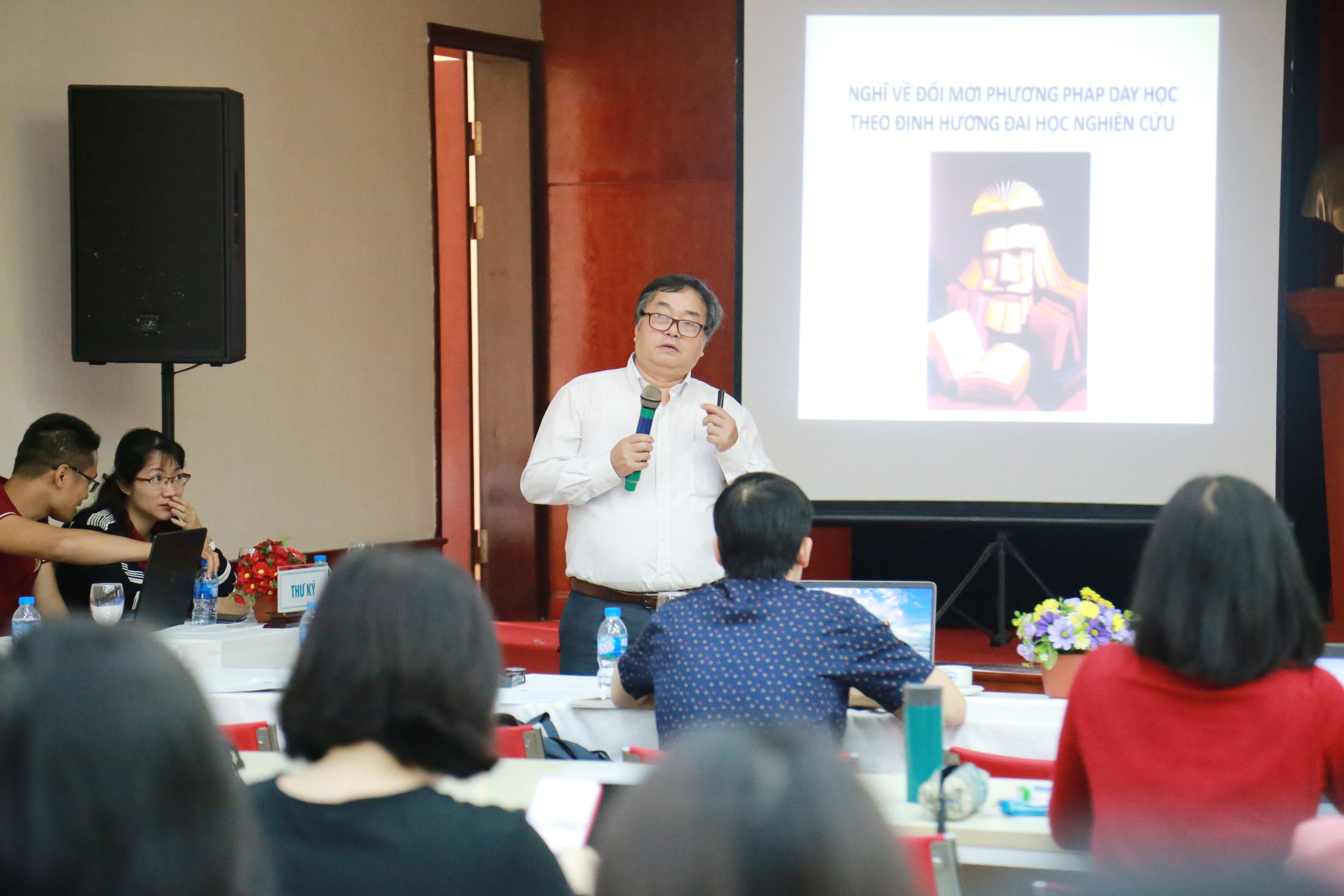
Associate Professor, Dr. Nguyen Van Chinh (Faculty of Anthropology) presented the report "Thinking about innovating teaching methods in the direction of research universities"
Associate Professor, Dr. Nguyen Van Chinh introduces the teaching methodresearch methods(Project_based learning) that I have been implementing for many years and have achieved certain results. That is, at the beginning of the course, students register for a topic and the teacher guides them through the steps to implement it. This method helps students not only gain knowledge but also learn critical thinking, information building skills, problem-solving and presentation skills. Many questions from real life will be raised for research. Students report their research topics regularly during class.
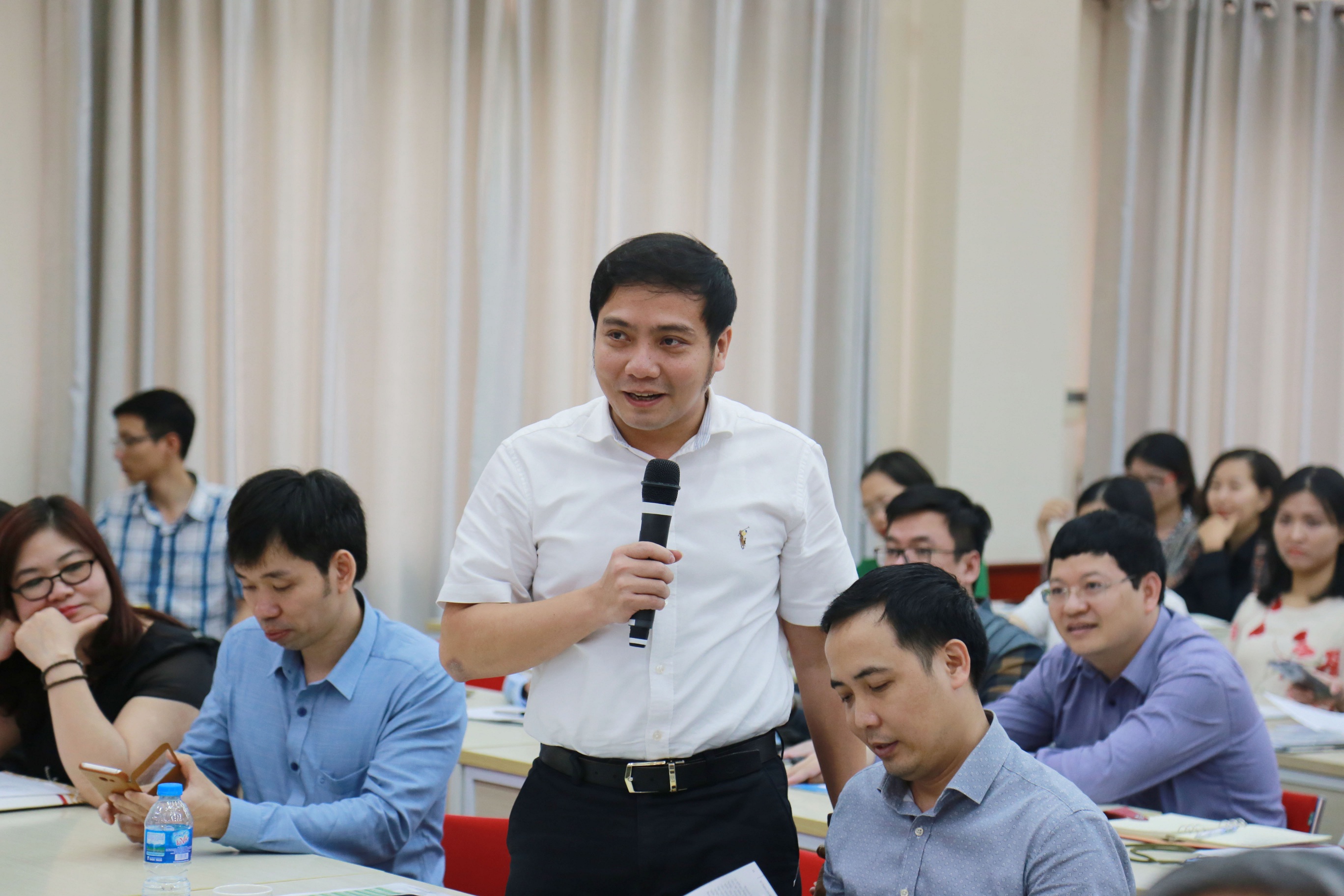
Associate Professor, Dr. Dao Thanh Truong (Director of the Institute of Policy and Management)
With this approach, lecturers must spend more time and effort interacting and supporting students. Usually, before class, lecturers send students research programs and reference materials in advance. In the first year, students need to read 20-25 pages of documents before each class. In the third and fourth years, students read up to 50 pages each time. Groups build their own research topics, discuss the meaning of the topic, choose the survey site, practice... The results obtained through the topic are extremely important to students. That is maturity and the ability to approach research steps to solve practical problems.
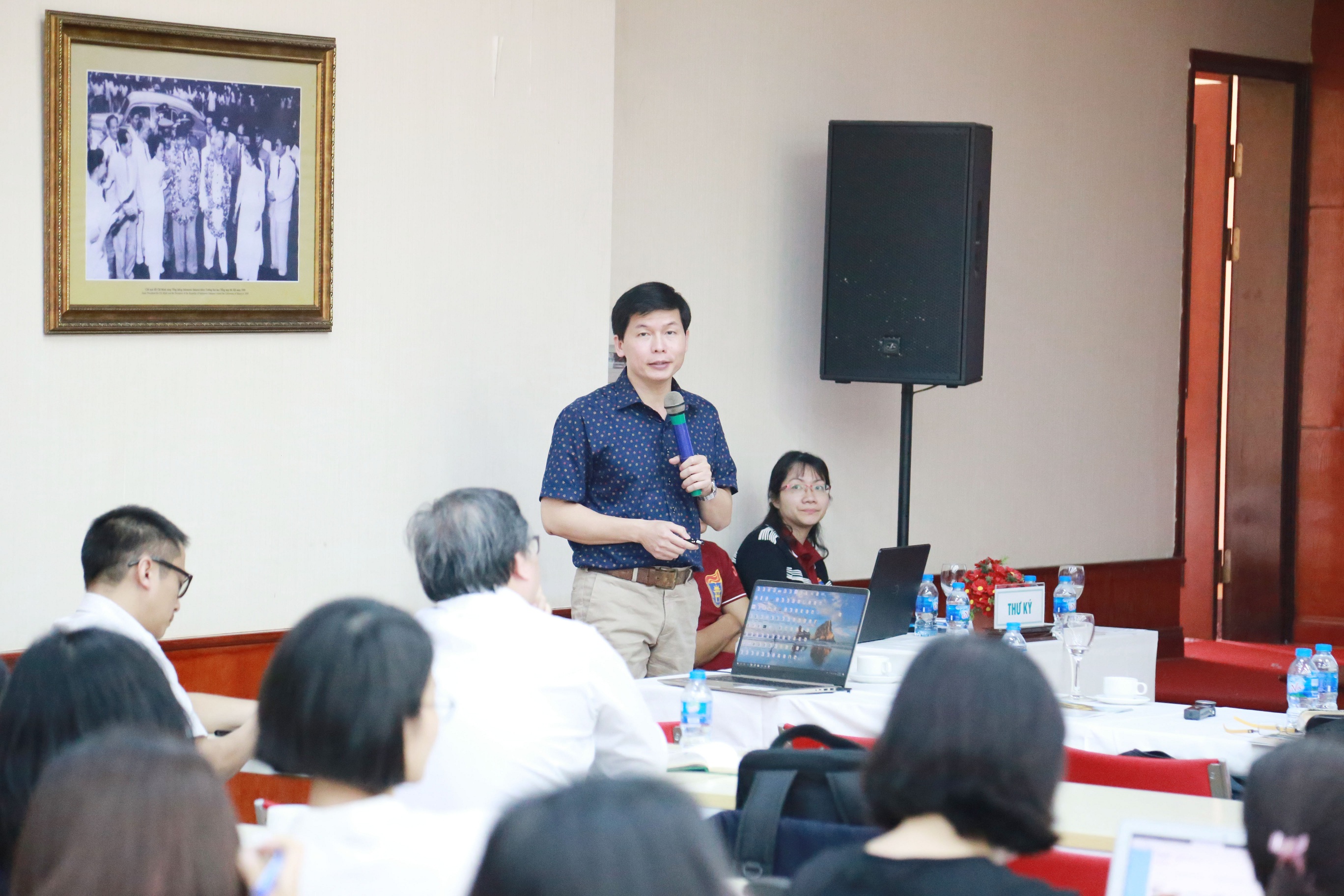
Associate Professor, Dr. Nguyen Chi Thanh (University of Education, Vietnam National University, Hanoi) presented the report "Application of educational technology, combined teaching methods in the context of digital university"
However, the implementation of this teaching method faces certain difficulties because the number of students in each class is still quite large and the lecturer does not have an effective teaching assistant team. "If we apply this method, we also need a series of related system changes" - Associate Professor Dr. Nguyen Van Chinh emphasized. For example, in terms of student assessment, in countries applying this teaching method, students' research results will account for 70-80% of the score, the rest is the score of the final exam. Focusing on training students' research skills is considered the focus of the teaching process.
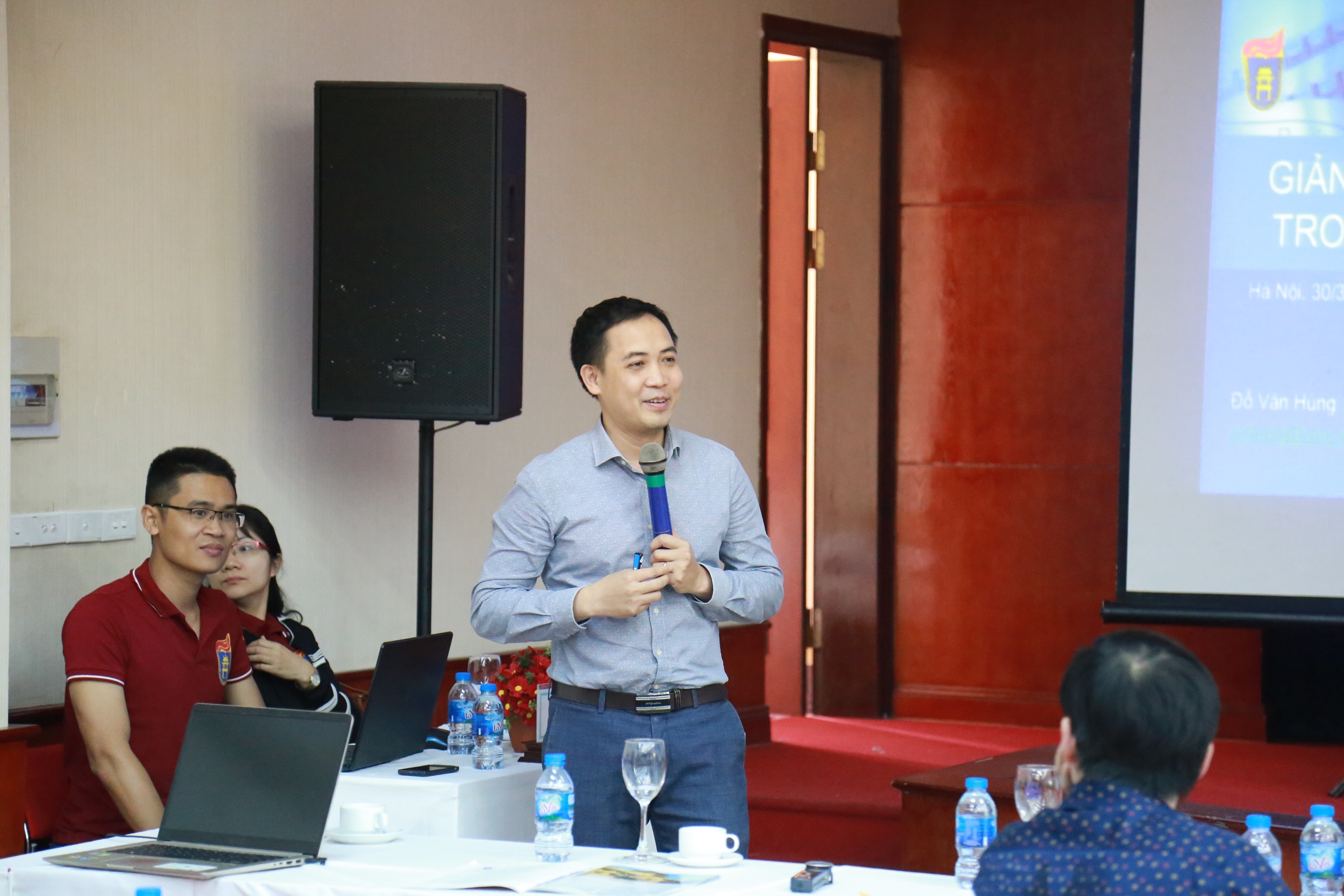
Dr. Do Van Hung (Head of Information and Library Department) presented a report on the application of information technology in teaching innovation.
“If we want to train students to be creative in science, increase interaction between lecturers and students, and encourage students to participate in scientific research activities, we must innovate teaching methods in this way. If we only impart knowledge in one direction or only want them to grasp the knowledge we want, we will never be able to train good students” - Associate Professor, Dr. Nguyen Van Chinh shared his opinion.

Dr. Lu Thi Thanh Le (Faculty of Literature)
Teaching innovation will be the key activity of the school year.
After listening to the multi-dimensional opinions contributing to the teaching innovation activities at the Conference, Associate Professor Dr. Hoang Anh Tuan (Vice Principal of the School) shared: "I noticed a consensus among teachers on the need to innovate teaching methods as an intrinsic need of the School, in a context where educational trends, social demands, the human resource market, learning conditions, needs and psychology of learners... have been and are changing a lot from before". This will be the opening conference for a long-term and regular innovation strategy with regular and specific training activities in the coming time at the University of Social Sciences and Humanities.
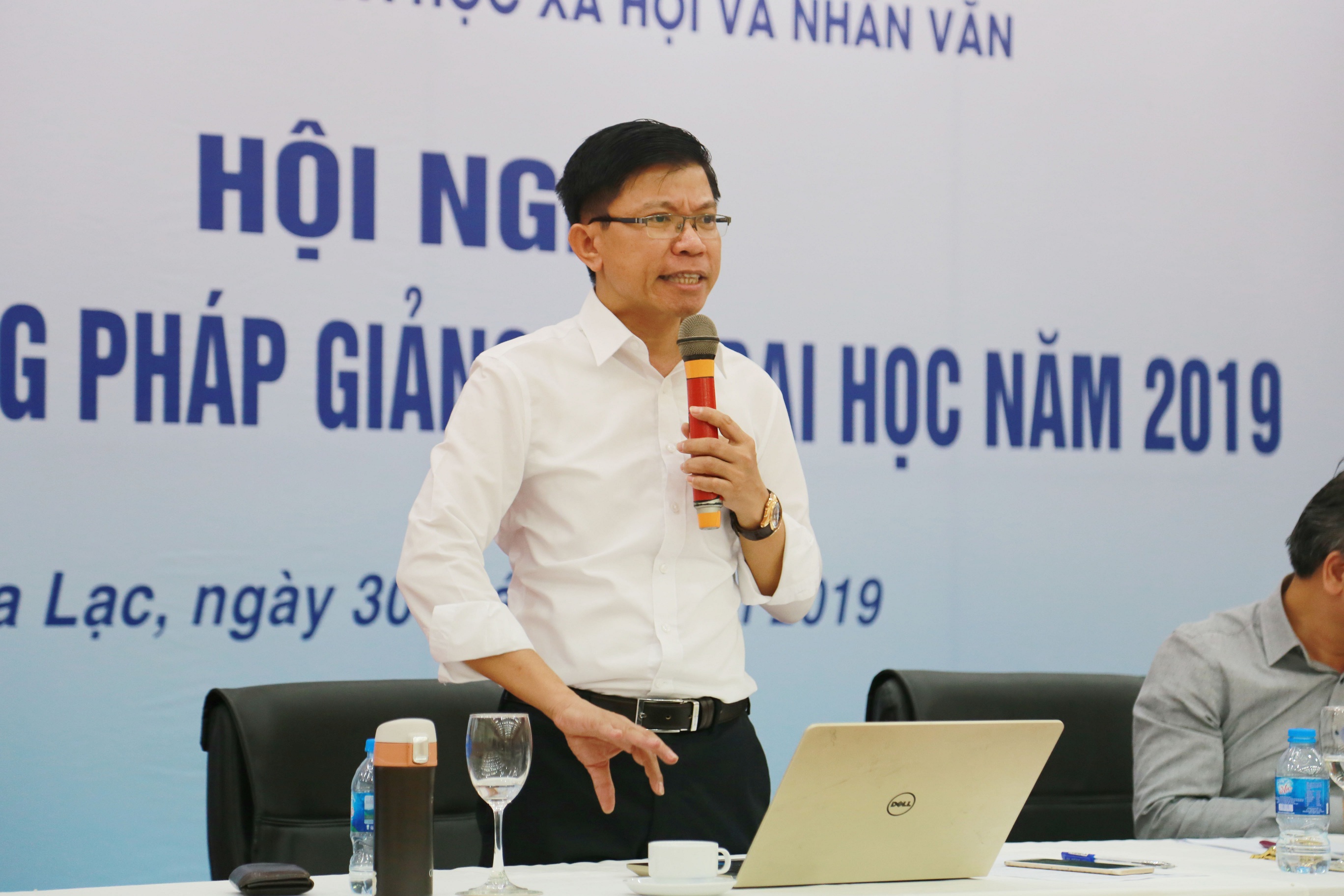
Vice Principal Hoang Anh Tuan
From the perspective of training management, Vice Principal Hoang Anh Tuan emphasized three basic factors of this innovation process. One is the factorhuman- All innovations must originate from the central role of the Teacher. Today's teachers are not simply the ones who impart knowledge but also play many more roles - multi-tasking: they are the ones who guide, help, understand and sympathize with the learners. It is the teachers - with their capacity, enthusiasm and affection - who will make the lessons come alive, of high quality and strongly inspire the students.
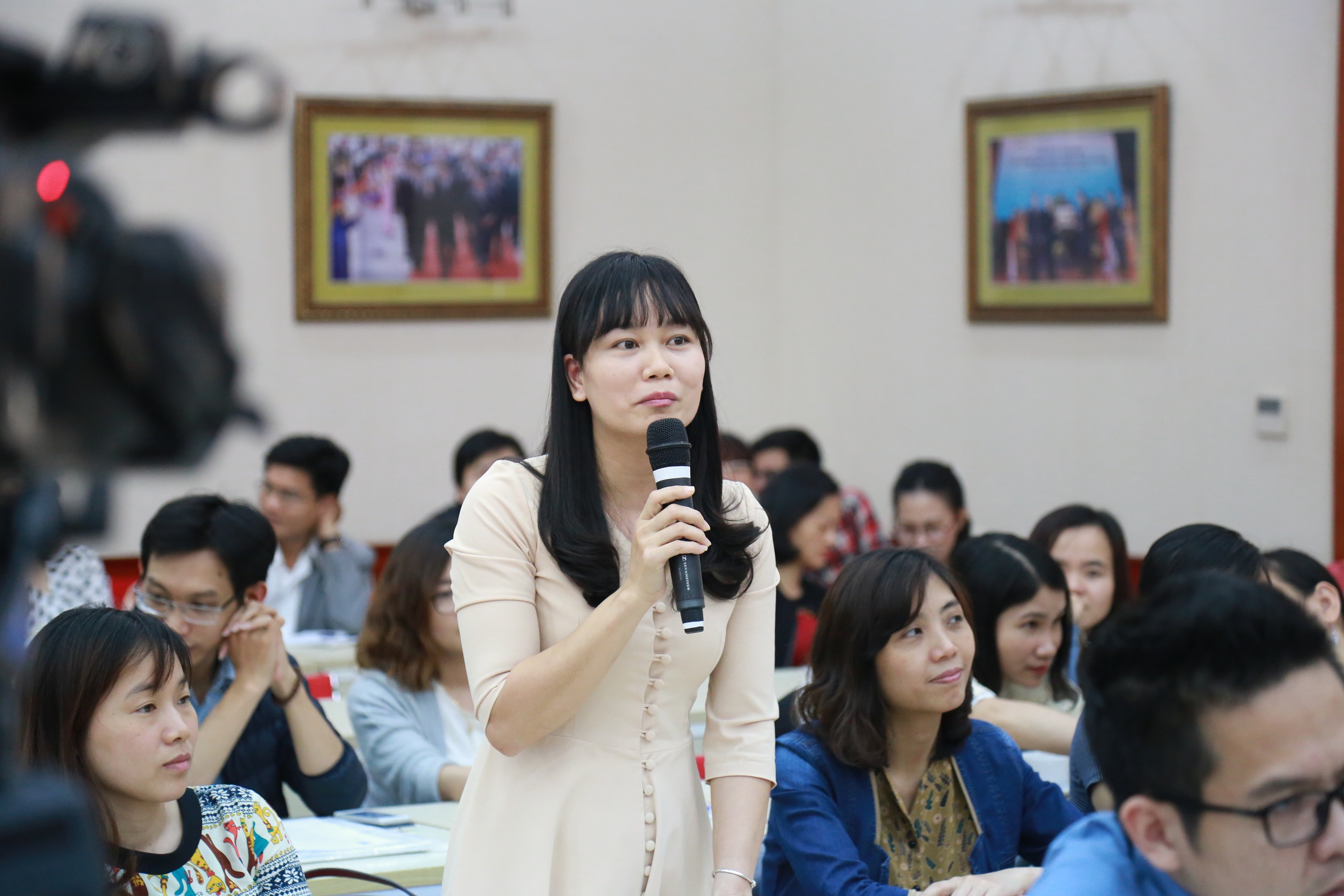
Dr. Dang Thi Nam Hoang (Faculty of Literature)
The second factor ispolicy mechanism- as a foundation for innovation activities. The school will quickly complete the overall strategy for innovation in teaching activities, in which special attention will be paid to building a synchronous, unified and suitable mechanism for this innovation activity. The third factor isinvestment costsfor innovation activities. This will be a priority activity this school year in particular and in the coming years in general.
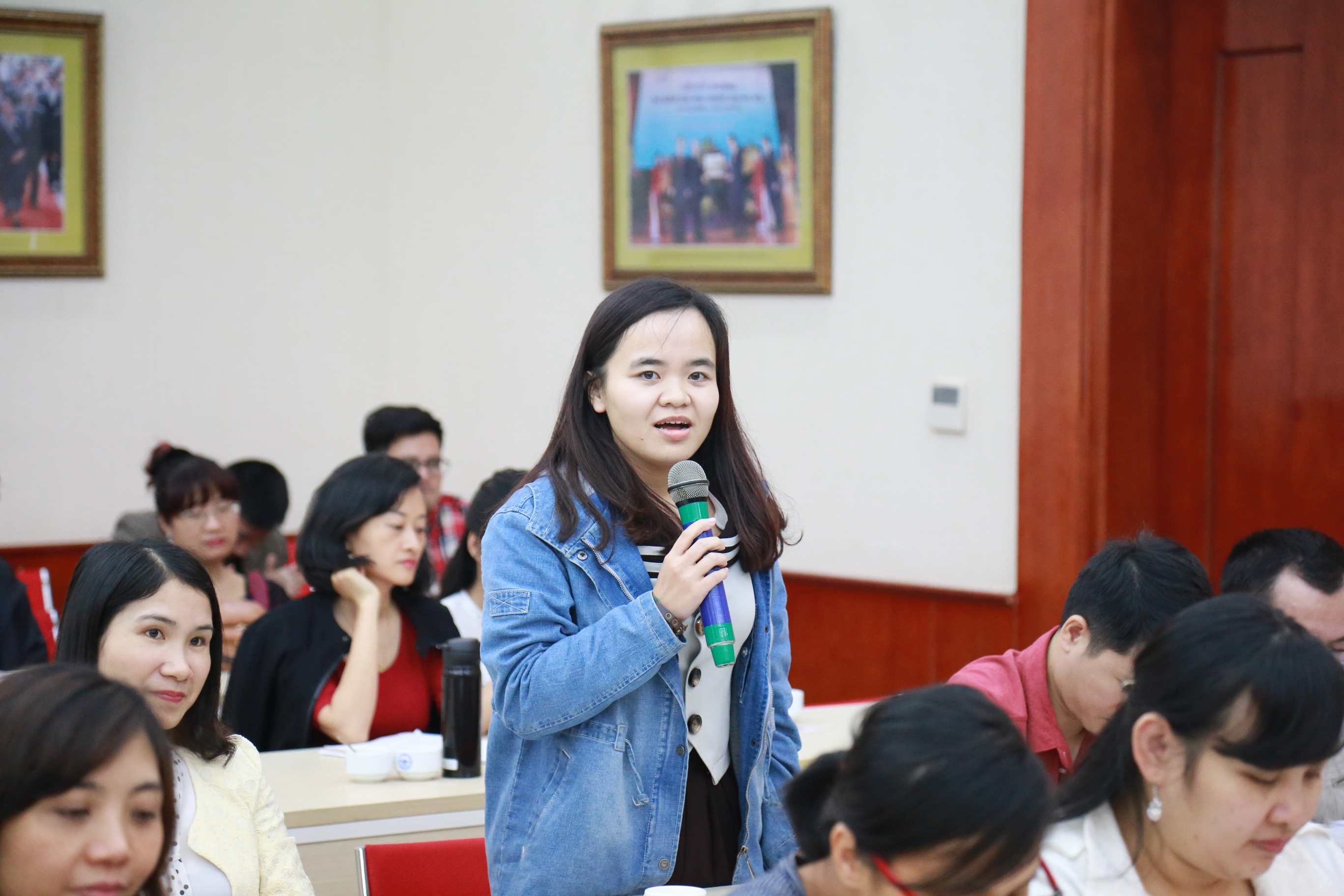
Lecturer Nguyen Huong Ngoc (Faculty of Literature)
Principal Professor Pham Quang Minh pledged: “The school will continue the innovation process, and is responsible for supporting the teaching innovation activities of the staff. It is the continuation of opinions and enthusiasm from generations of lecturers of the school, expressed through diverse and multi-dimensional contributions at today's Conference that makes it impossible for anyone to be indifferent to such an urgent need.”
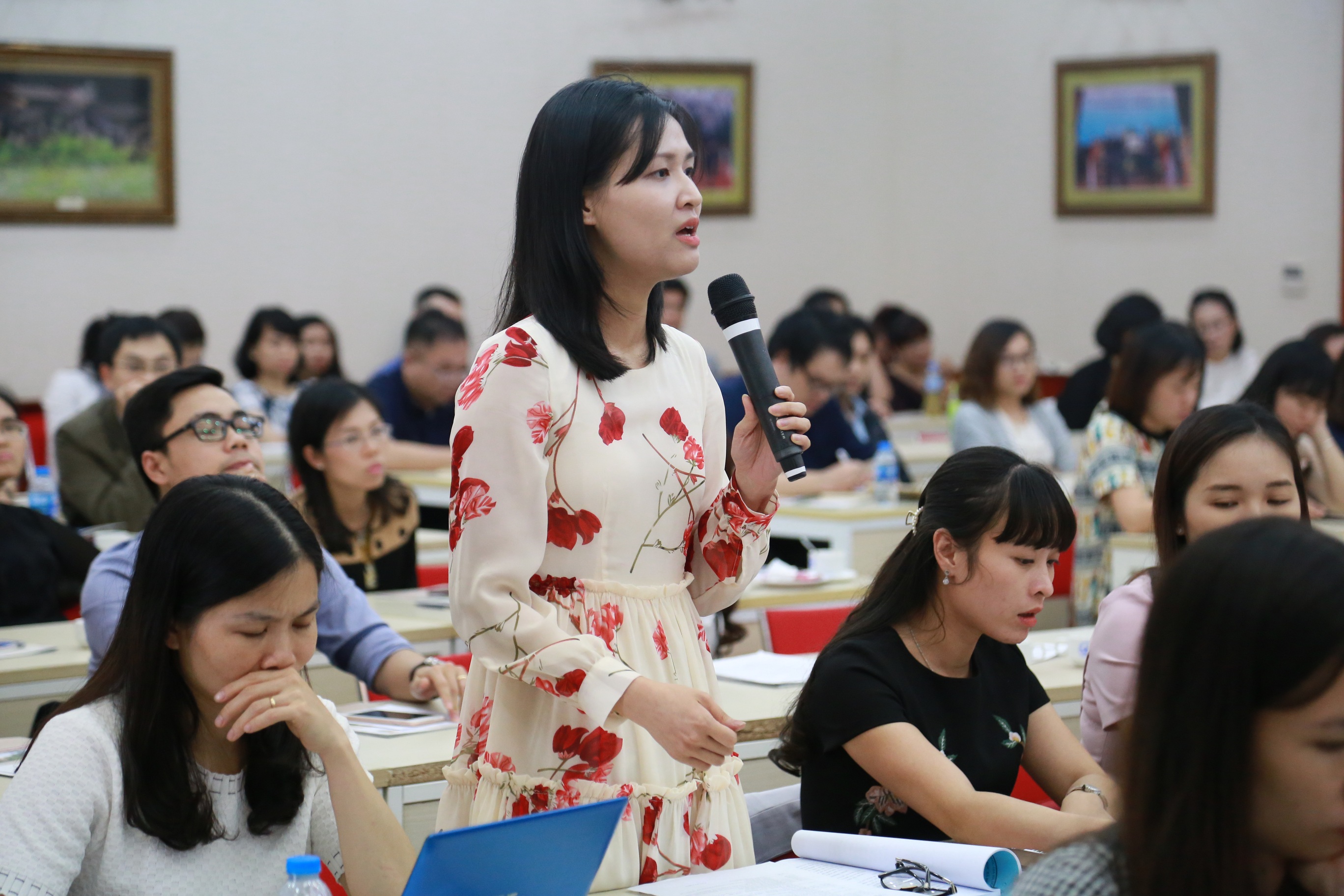
Dr. Dang Hoang Ngan (Faculty of Psychology)
The Principal said that the School will organize more training courses on research methods, teaching, and international publications for lecturers; increase investment in developing subject websites; apply information technology to improve efficiency and transparency in the teaching process; deploy anti-plagiarism software...
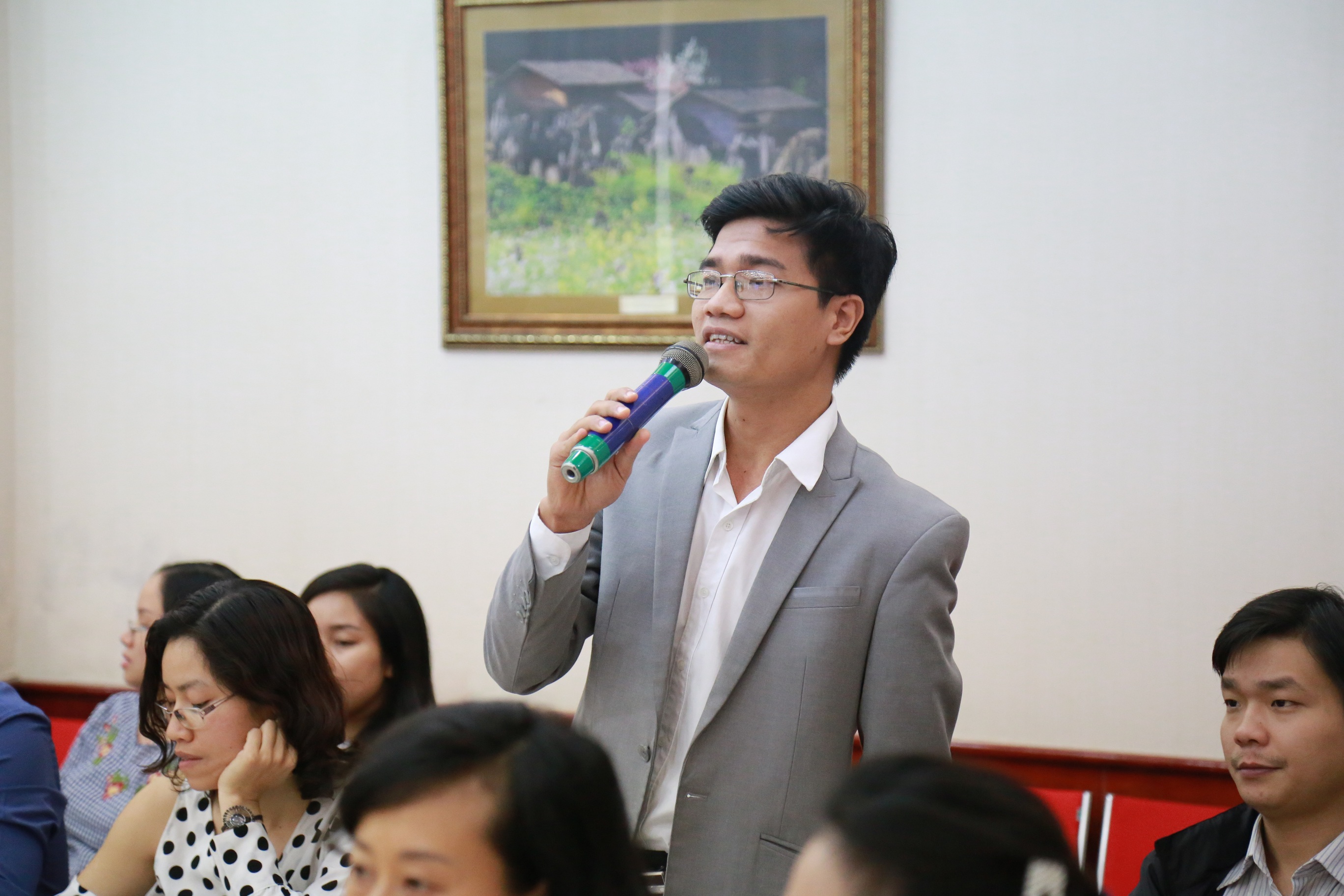
Dr. Dang Hoang Giang (Faculty of Vietnamese Studies and Vietnamese Language)
“In the end, innovation activities must originate from the innovation inspiration of each lecturer. Because every teacher wants to have lessons that inspire students. And today I have been inspired about innovation, not only by generations of veteran teachers such as Professor Vu Duong Ninh, Associate Professor Vu Cao Dam but also by young lecturers” - Professor Pham Quang Minh said at the end of the Conference.
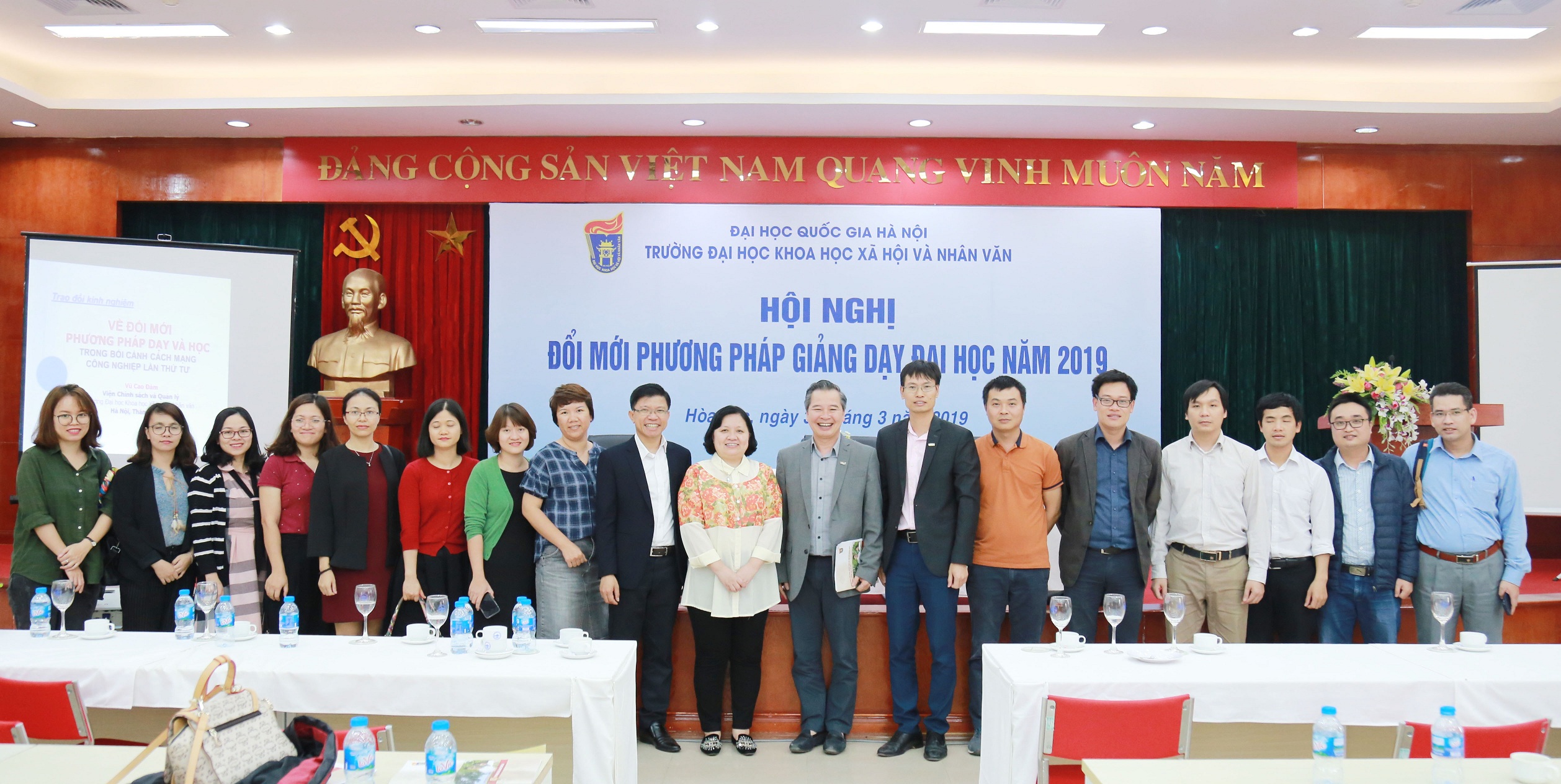
Author:Thanh Ha, Cong Minh
Newer news
Older news